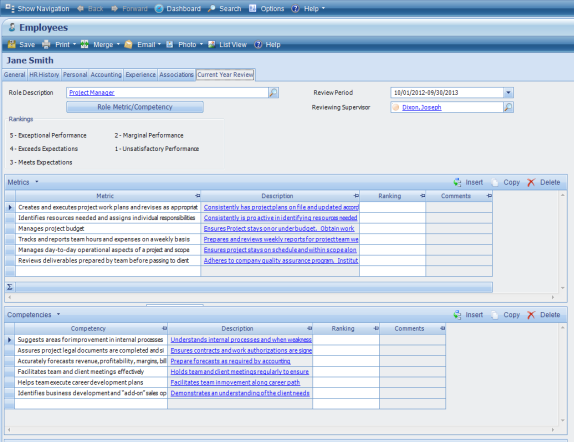 Our modern day culture is often obsessed with perfection. Magazine covers are graced by photoshopped professional models and our TV screens are filled with successful eclectics whose wealth is their biggest problem.
Our modern day culture is often obsessed with perfection. Magazine covers are graced by photoshopped professional models and our TV screens are filled with successful eclectics whose wealth is their biggest problem.
Fortunately, perfection is not an attainable goal; the real goal is the path we follow as we strive for peak performance which is the essence of a 'perfect employee'.
It was Vince Lombardi that said, “Perfection is not attainable, but if we chase perfection we can catch excellence.” Considering that the NFL Super Bowl trophy is named after Vince Lombardi, you could say he knew a thing or two about peak performance…
So, what qualities help us along this path to being the ‘perfect employee’?
What are the 11 P's of Peak Performance?
If obtaining peak performance is our professional goal, then, what exactly are the attributes that we need to be the 'perfect employee'? Following is the list of benchmark qualities you should strive for on your path:
1. Proficient. Sure, you can’t have all the answers but you know how to dive in or connect with the right people to figure them out. You come to the table with suggestions - not more problems. You are constantly looking at how to improve the process.
2. Proud. You are proud of your work because your efforts are always well thought out, tested and reviewed. You don't rely on others to finish your assignments but ask others to quality check your work to make sure it is always correct.
3. Persistent. We all know to learn from mistakes, but the 'perfect employee' personifies this concept. You admit when you are wrong sooner than later. If you don't know how to do something, you find out how … with no excuses.
4. Passionate. You LOVE what you do and radiate emotion when you talk about your work! You learn on your own, offer improvements, and share with others what you know.
5. Productive. Your willingness to push up your sleeves and work overtime while not jeopardizing other commitments is renowned. While we all have parts of our jobs that are not favorable, 'perfect employees' realize the goal of those less desirable tasks and get them done.
6. Positive. You exemplify “Can Do!” by accepting that you can always improve, you see challenges as opportunities, and you think about how things can be done instead of complaining about what you can't change (including the past).
7. Professional. You understand that while comradery is important with co-workers and clients, there is a fine line between “fun” and unprofessional “fooling around.” You make sure your work is top notch and your comments will not ever be construed as childish or offensive.
8. Able to keep Promises. You are always thinking about priorities and when the job will be completed in order to deliver in order to keep your promise. You communicate when a conflict arises but still look to deliver on time. You are faithful about deadlines and rarely provide excuses.
9. Punctual. You understand the value of time, yours as well as others. People think “punctual” is your middle name.
10. Able to Promote … others and yourself. You promote great deeds and great work regardless of who completed it. You are always thinking and talking about ways to make the workplace a better environment for your colleagues and services better for clients.
11. Purposeful. Each day has a purpose. You take each day and every action seriously; constantly thinking about what needs to be accomplished and how to generate purposeful results.
HOW to be “perfect” (or close)?
Providing professional services, by nature, means that we are tasked to serve our clients. We often measure billings, schedule delivery and quality of deliverables, yet fail to objectively measure the real goal - driving client delight. Strive to be the 'perfect employee' to your clients by evaluating how to obtain your peak performance and implementing continuous improvement with feedback!






 Our modern day culture is often obsessed with perfection. Magazine covers are graced by photoshopped professional models and our TV screens are filled with successful eclectics whose wealth is their biggest problem.
Our modern day culture is often obsessed with perfection. Magazine covers are graced by photoshopped professional models and our TV screens are filled with successful eclectics whose wealth is their biggest problem. 
